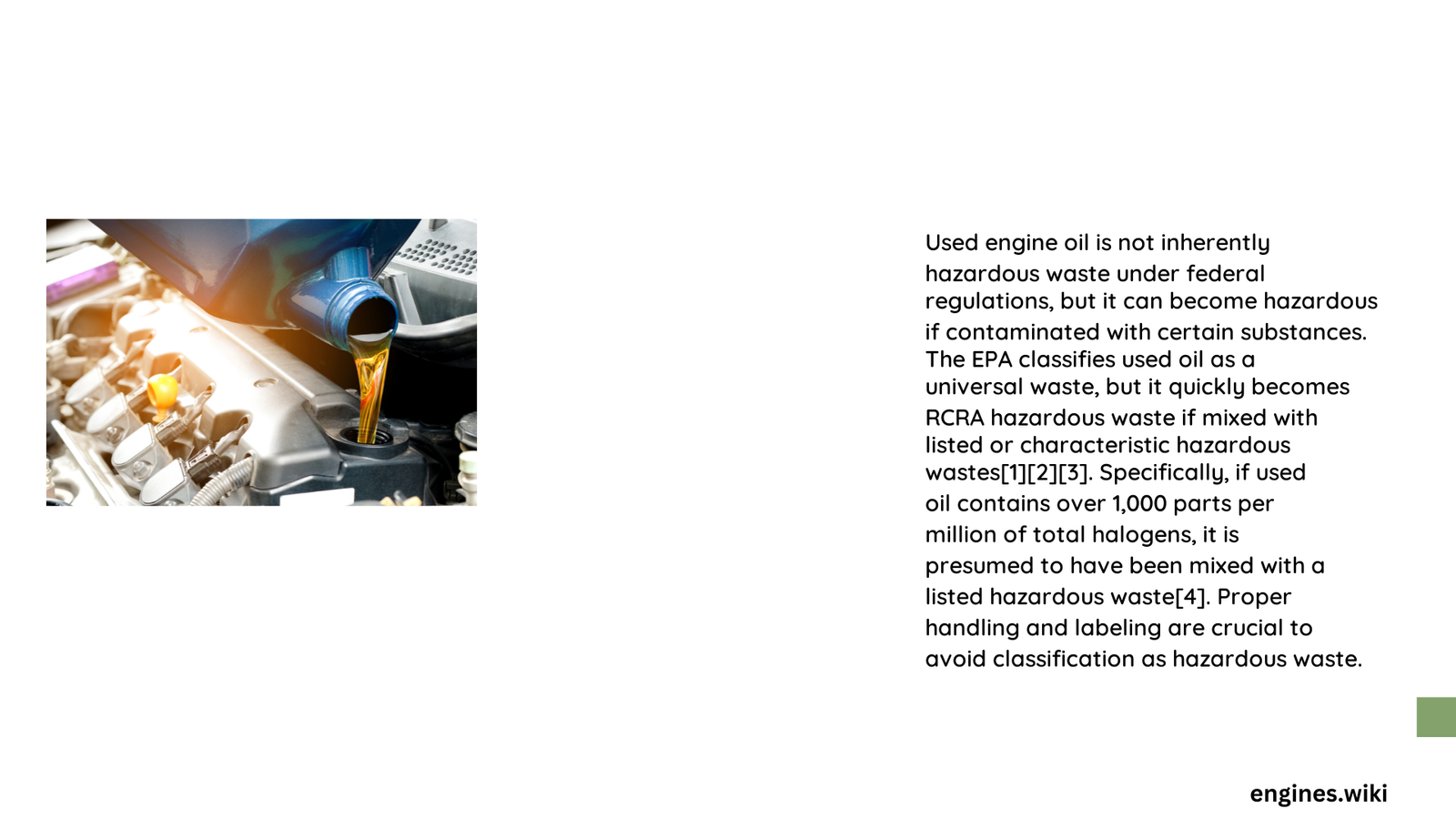Used engine oil represents a complex waste stream that requires careful management and understanding. While not universally classified as hazardous waste, its potential environmental impact demands responsible handling, recycling, and disposal practices that comply with federal and state regulations. Proper management ensures minimal ecological risk and maximizes resource conservation.
What Determines Used Engine Oil’s Waste Classification?
How Does Federal Regulation Define Used Engine Oil?
The U.S. Environmental Protection Agency (EPA) provides specific criteria for classifying used engine oil:
- Origin Requirements:
- Refined from crude oil
- Synthetic oil base
-
Used as lubricant or similar purpose
-
Contamination Factors:
- Physical impurities
- Chemical contamination
- Degradation during use
What Makes Used Engine Oil Potentially Hazardous?
Used engine oil can contain hazardous elements that require careful management:
| Contaminant | Potential Risk | Environmental Impact |
|---|---|---|
| Heavy Metals | Toxic | Groundwater Pollution |
| Particulates | Carcinogenic | Soil Contamination |
| Chemical Additives | Harmful | Ecosystem Disruption |
What Are the Key Disposal Regulations?
Storage Requirements
- Sealed containers
- Proper labeling
- Rust-free condition
- Secondary containment recommended
Recycling Guidelines
- Re-refining process
- Fuel reconditioning
- Industrial applications
- Authorized recycling facilities
How Does Improper Disposal Impact Environment?
Potential Consequences:
– Water source contamination
– Soil degradation
– Ecosystem disruption
– Long-term environmental damage
What Are Best Practices for Used Engine Oil Management?
Recommended Approach:
– Always collect used oil separately
– Store in designated containers
– Transport to certified recycling centers
– Maintain detailed documentation
– Follow local and federal guidelines
What Happens During Professional Recycling?
Professional recycling involves multiple stages:
– Collection
– Preliminary screening
– Contaminant removal
– Re-refining process
– Quality testing
– Repurposing
Economic and Environmental Benefits
- Energy conservation
- Reduced virgin oil demand
- Lower carbon footprint
- Resource optimization
- Potential economic returns
Conclusion

While used engine oil is not automatically classified as hazardous waste, its potential environmental impact necessitates responsible management. Adherence to regulations, proper recycling, and professional disposal remain critical for sustainable waste management.
